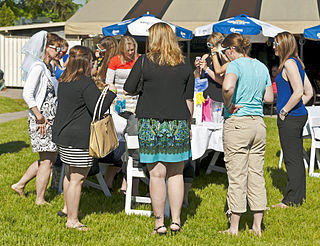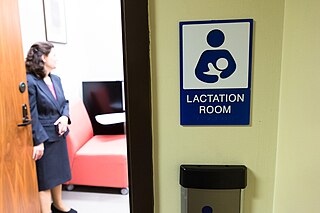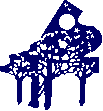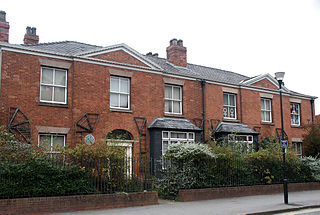 W
WA hen night or bachelorette party is a party held for a woman who is about to get married. While Beth Montemurro concludes that the bachelorette party is modelled after the centuries-old stag night in the US, which is itself historically a dinner given by the bridegroom to his friends shortly before his wedding, Sheila Young argues that its British counterpart evolved from a number of earlier pre-wedding traditions for women whose origins are obscure but which have been around for at least a century in factories and offices across the UK. Despite its reputation as "a sodden farewell to maiden days" or "an evening of debauchery", these events can simply be parties given in honor of the bride-to-be, in the style that is common to that social circle.
 W
WFrauenbad Stadthausquai is a public bath in Zürich, Switzerland, forming part of the historical Seeuferanlage promenades that were built between 1881 and 1887. Situated at the Stadthausquai by the Bürkliplatz plaza, the bath was built for, and is still exclusively used by women.
 W
WThe Golden Needle Sewing School was an underground school for women in Herat, Afghanistan, during the rule of the Taliban. Because women were not allowed to be educated under the strict interpretation of Islamic law introduced by the Taliban, women writers belonging to the Herat Literary Circle set up a group called the Sewing Circles of Herat, which founded the Golden Needle Sewing School in or around 1996.
 W
WLactation room is an American English term for a private space where a nursing mother can use a breast pump. The development is mostly confined to the United States, which is unique among developed countries in providing minimal maternity leave. Historian Jill Lepore argues that the "non-bathroom lactation room" and breast pumps generally are driven by corporate need for workers rather than mothers' wishes or babies' needs.
 W
WThe Ladies Rest Room is a historic building in Lewisburg, Tennessee, that is listed on the National Register of Historic Places.
 W
WMcIver Women's Baths is a heritage-listed women's baths at Grant Reserve, Coogee, City of Randwick, New South Wales, Australia. It was built from 1876 to 1886. It is also known as Coogee Women's Pool and Ladies Baths. The property is owned by Randwick City Council. It was added to the New South Wales State Heritage Register on 18 November 2011.
 W
WThe Michigan Womyn's Music Festival, often referred to as MWMF or Michfest, was a feminist women's music festival held annually from 1976 to 2015 in Oceana County, Michigan, on privately owned woodland near Hart Township referred to as "The Land" by Michfest organizers and attendees. The event was built, staffed, run, and attended exclusively by women, with girls, boys and toddlers permitted.
 W
WWomen's mosques exist around the world, with a particularly rich tradition in China. As Islam has principles of segregating the sexes, many places of worship provide a dedicated prayer space for women within the main building, but in a few countries, separate buildings were constructed. In some cases, women were allowed to become imams.
 W
WThe Mountain Moving Coffeehouse for Womyn and Children was a lesbian feminist music venue, located in Chicago and known across the United States. It operated for thirty-one years, from 1974 until 2005. The name of the organization evokes the political task that feminists must "move the mountains" of institutional sexism and homophobia. The alternative spelling of "womyn" represented an expression of female independence and a repudiation of traditions that define women by reference to a male norm.
 W
WNkosi's Haven is an NGO in the Johannesburg, South Africa area that offers residential, holistic care and support for mothers and their children whose lives have been impacted by HIV/AIDS. Nkosi's Haven also provides support for orphans, HIV/AIDS affected or not. It aims to improve the productivity of their residents through providing access to medical care, therapy, education and skill building workshops. The goal is to empower residents while providing a safe, dignified home in hopes that all mothers and children are able to become responsible and contributing members of society.
 W
WThe Pankhurst Centre, 60–62 Nelson Street, Manchester, is a pair of Victorian villas, of which No. 62 was the home of Emmeline Pankhurst and her daughters Sylvia, Christabel and Adela and the birthplace of the suffragette movement in 1903.
 W
WWomen's parking spaces are specially designated and identified parking spaces in parking garages and parking lots to be used by women. They are usually near exits to increase the safety of women, to facilitate parking, or to facilitate walking to shopping or employment destinations.
 W
WWomen-only passenger cars are railway or subway cars intended for women only. They are a result of sexual segregation in some societies, but also can result from attempts to reduce sexual harassment and assault such as groping.
 W
WThe Shore of Women is a 1986 feminist science fiction novel by American author Pamela Sargent. The story follows the point of view of Laissa and Arvil in the first part, titled "The Enclave". It follows Birana and Arvil in the second part, "The Refuge". In the final part called, "The Shrine", is narrated by Laissa again.
 W
WUmoja Uaso, is a village in Kenya. The village, founded in 1990, is an all-female matriarch village located near the town of Archers Post in Samburu County, 380 km (240 mi) from the capital, Nairobi. It was founded by Rebecca Lolosoli, a Samburu woman, as a sanctuary for homeless survivors of violence against women, and young girls running from forced marriages. The women of the Samburu people do not agree with violence and the traditional subordinate position of women.
 W
WThe zenana missions were outreach programmes established in British India with the aim of converting women to Christianity. From the mid 19th century, they sent female missionaries into the homes of Indian women, including the private areas of houses - known as zenana - that male visitors were not allowed to see. Gradually these missions expanded from purely evangelical work to providing medical and education services. Hospitals and schools established by these missions are still active, making the zenana missions an important part of the history of Christianity in India.